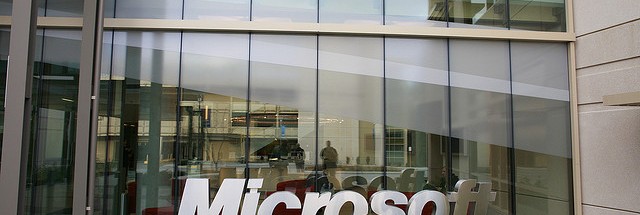
Microsoft is putting its weight on a European effort to force big tech companies to pay for the right to link to news articles. Google and Facebook strongly opposed such proposals in Europe and Australia, describing them as an attack on the open web. Microsoft disagrees.
“Access to new, broad and deep press coverage is critical to the success of our democracies,” said Microsoft vice president Casper Klynge in a press release.
Specifically, Microsoft is supporting calls for Europe to adopt a mandatory arbitration rule like the one being considered in Australia. Such a rule would increase the influence of news publishers, giving them a way to force tech giants to negotiate.
Klynge praised Microsoft’s previous financial support for journalism and described an Australian-style arbitration mechanism as “a logical next step”.
An offer that Google literally cannot refuse
Pressure on Google to pay for news articles intensified in 2019, when the EU parliament passed copyright legislation giving news organizations a “neighboring right” over the use of excerpts from their articles. Laws like this across the EU must be translated into the local legislation of each EU nation. France was one of the first countries to do this.
In the past, Google responded to laws like this simply by removing a country’s news articles from search results. But this time, the French competition authorities warned Google that this would be considered unfair discrimination and, therefore, a violation of competition laws.
As a result, Google had no choice but to pay some licensing fees to news organizations. In Google’s first deal under the new structure, the search giant pledged to pay $ 76 million over three years to 121 different news organizations.
Still, some French news organizations criticized the deal as a way to get Google off the hook too easily. And now, some are calling for an even stronger legal mechanism to force Google – and possibly other tech giants – at the table.
In Australia, authorities are considering establishing a baseball-style arbitration process, in which each party submits an offer and then a neutral referee decides which offer is most reasonable. This deal is widely seen as more favorable to news organizations, as it gives tech giants an incentive not to drag negotiations or to insist on low licensing fees.
“Fair and balanced agreements”
In their new blog post, Microsoft and several European newsgroups ask European lawmakers to “be inspired by the new Australian legislation that requires the technology guardians covered by this law to share revenue with news organizations.” They say the law “should require payments for the use of the content of press editors by these guardians and should include arbitration provisions, to ensure that fair deals are negotiated.”
“Even if publishers have a neighboring right, they may not have the economic strength to negotiate fair and balanced deals with these technology companies,” say Microsoft and the publishers. Without protections, technology keepers “may otherwise threaten to abandon negotiations or exit markets altogether”.
You can expect Microsoft to stand side by side with Google in a fight that pits American tech giants against European politicians and publishers. But Google and Microsoft are in very different positions in the search market. Google has more than 90% of the search market share in Australia and several European countries, while Microsoft’s Bing is mired in single digits. Therefore, the “link tax” proposals will cost Google much more than Microsoft.
Supporting European lawmakers can help Microsoft build goodwill in that country. Meanwhile, if Google actually invoked the nuclear option and closed its search engine in Australia or elsewhere, it could mean huge gains in market share for Bing. Thus, fueling the conflict between its biggest research rival and foreign governments may have far more advantages than disadvantages for Microsoft.
